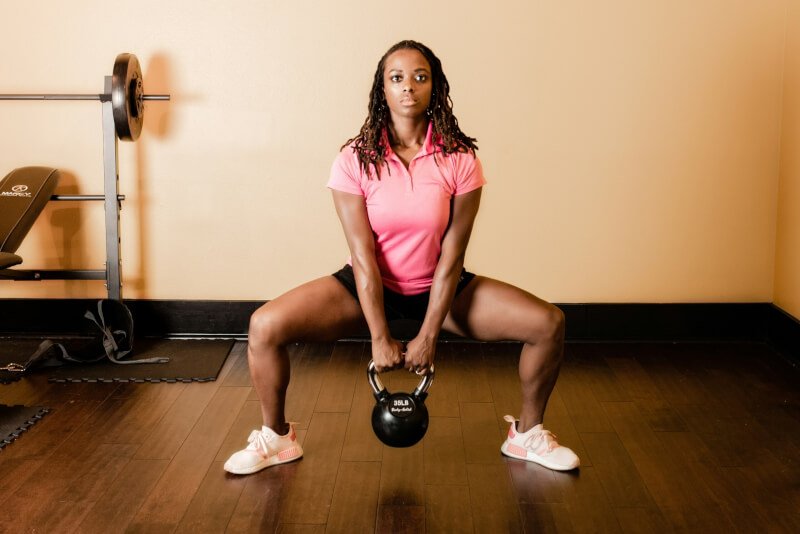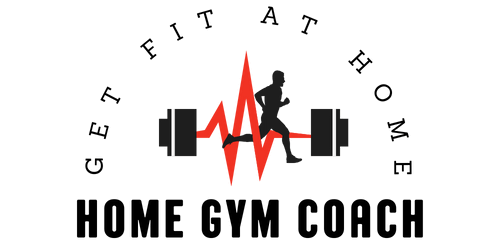Are you looking to take your fitness journey to the next level? Look no further because the key to achieving your fitness goals lies in the role of nutrition in customizing your workout plan. While exercise is undoubtedly important, the food you consume plays a vital role in maximizing your workout results. By fueling your body with the right nutrients and following a tailored nutrition plan, you can enhance your exercise performance, optimize muscle growth, and promote overall well-being. So, if you’re ready to unlock your full fitness potential, let’s explore the essential role of nutrition in customizing your workout plan.

Benefits of Proper Nutrition
Proper nutrition plays a critical role in optimizing your workout performance and overall fitness goals. By fueling your body with the right nutrients, you can enhance your performance, support muscle growth and repair, improve recovery time, boost energy levels, and aid in weight management.
Enhances performance
When you provide your body with the necessary nutrients, it functions optimally, allowing you to perform at your best during workouts. Proper nutrition ensures that you have sufficient energy reserves to sustain intense physical activity, enabling you to push harder and achieve better results.
Supports muscle growth and repair
Muscles require a steady supply of protein and other essential nutrients to grow and repair themselves. By consuming adequate amounts of protein, your body can synthesize and rebuild damaged muscle tissues, leading to increased muscle mass and improved strength.
Improves recovery time
Proper nutrition is crucial for effective post-workout recovery. Consuming a well-balanced meal or snack after exercise replenishes depleted glycogen stores, facilitates muscle repair, and reduces muscle soreness. By prioritizing post-workout nutrition, you can recover faster, allowing you to get back to your exercise routine sooner.
Boosts energy levels
The food we eat serves as fuel for our bodies. By consuming nutrient-dense foods such as whole grains, lean proteins, fruits, and vegetables, you provide your body with a steady source of energy. This sustained energy release helps enhance your endurance, allowing you to perform better and avoid fatigue during workouts.
Aids in weight management
Maintaining a healthy weight is an essential goal for many individuals. Proper nutrition enables you to achieve this by helping you manage your calorie intake and make healthier food choices. By focusing on nutrient-dense foods and proper portion control, you can create a calorie deficit or maintain a healthy calorie balance to support weight loss or maintenance.
Pre-Workout Nutrition
Importance of fueling up before exercise
Fueling your body before a workout is essential to ensure optimal performance and prevent fatigue. By consuming a balanced meal or snack before exercise, you provide your muscles with the necessary energy to perform at their best. Pre-workout nutrition also helps maintain stable blood sugar levels, maximizing endurance and preventing dizziness or weakness during physical activity.
Optimal macronutrient ratios
To maximize pre-workout nutrition, it’s important to focus on consuming a balanced combination of macronutrients. This typically includes a mix of carbohydrates, protein, and a small amount of healthy fats. Carbohydrates supply the primary source of energy, while protein supports muscle growth and repair. Including healthy fats can provide sustained energy during prolonged workouts.
Hydration strategies
Hydration plays a significant role in pre-workout nutrition. Proper hydration ensures that your body is adequately fueled and can perform optimally. It is recommended to consume fluids before exercise to maintain hydration levels. Opting for water, sports drinks, or even coconut water can replenish electrolytes lost through sweat and support overall performance.
Pre-workout snack ideas
When it comes to pre-workout snacks, it’s essential to choose options that are easily digestible, provide sustained energy, and are rich in nutrients. Some great pre-workout snack ideas include a banana with nut butter, Greek yogurt with berries, a homemade protein smoothie, or a small serving of whole grain toast with avocado.
During-Workout Nutrition
Importance of staying hydrated
Staying hydrated during your workout is critical for performance and overall well-being. When you sweat, your body loses water and electrolytes, which can result in dehydration if not adequately replenished. Proper hydration helps maintain optimal body temperature, supports cardiovascular function, and prevents muscle cramps and fatigue.
Electrolyte replenishment
Electrolytes, such as sodium, potassium, and magnesium, play a vital role in maintaining fluid balance and supporting muscle function. When engaging in prolonged or intense workouts, especially in hot climates, replenishing electrolytes becomes essential. Sports drinks and electrolyte-rich beverages help replace lost electrolytes and support hydration during strenuous physical activity.
Intra-workout fueling options
For longer workouts lasting more than one hour, it might be necessary to consume additional fuel during exercise to maintain energy levels. Easily digestible carbohydrates, such as energy gels, sports chews, or even a small piece of fruit, can provide a quick energy boost. Experiment with different options to find what works best for your body and the type of exercise you engage in.
Sports drinks vs. water
When it comes to hydration during exercise, the choice between sports drinks and water depends on the intensity and duration of your workout. Water is generally sufficient for shorter, low to moderate-intensity workouts. However, for longer, high-intensity workouts or endurance activities lasting over 60 minutes, sports drinks can replenish electrolytes and provide carbohydrates to fuel prolonged exertion.
Post-Workout Nutrition
The window of opportunity
Post-workout nutrition is crucial for optimizing recovery and maximizing the benefits of your workout. Consuming the right nutrients within the “window of opportunity” – typically within 30 minutes to two hours after exercise – allows your body to replenish glycogen stores, repair damaged muscle tissues, and kickstart the recovery process.
Importance of protein for muscle recovery
Protein plays a vital role in muscle recovery and repair. Consuming protein-rich foods or supplements post-workout provides the necessary amino acids to aid in muscle protein synthesis and stimulate muscle growth. Aim for a combination of high-quality protein sources such as lean meats, poultry, fish, dairy products, legumes, or plant-based protein powders.
Carbohydrates for glycogen replenishment
During exercise, your body relies on stored glycogen (carbohydrates) as an energy source. Replenishing these glycogen stores post-workout is crucial to support recovery and prepare your body for the next exercise session. Focus on consuming complex carbohydrates such as whole grains, fruits, and vegetables to replenish glycogen levels efficiently.
Incorporating fruits and vegetables
Fruits and vegetables are rich in vitamins, minerals, antioxidants, and fiber, making them essential components of a post-workout meal or snack. These nutrient-dense foods aid in recovery, reduce inflammation, and support overall health. Adding a variety of colorful fruits and vegetables to your post-workout nutrition is a great way to ensure you’re meeting your micronutrient needs.
Supplement options
Some individuals may benefit from incorporating supplements into their post-workout routine. Whey protein powder, for example, provides a convenient and easily digestible source of protein. Branched-chain amino acids (BCAAs) supplements can also aid in muscle recovery and reduce muscle soreness. However, it’s important to consult with a healthcare professional or registered dietitian before adding any supplements to your routine.

Nutrition for Different Workouts
Strength training
Strength training places significant demands on your muscles and requires proper nutrition to support muscle growth and repair. Adequate protein intake is crucial for strength training, as are carbohydrates to provide energy for lifting weights. Including a mix of lean proteins, healthy fats, and complex carbohydrates in your meals and snacks can help meet your nutritional needs for strength training.
Endurance training
Endurance training, such as long-distance running or cycling, relies heavily on glycogen as an energy source. Therefore, it’s essential to focus on carbohydrates for adequate fueling. Consuming easily digestible carbohydrates, such as whole grain pasta, rice, or energy gels, before and during endurance workouts can help sustain energy levels and delay fatigue.
High-intensity interval training
High-intensity interval training (HIIT) combines short bursts of intense exercise with periods of rest or lower-intensity exercise. Since HIIT workouts are intense, they primarily rely on glycogen stores for energy. Consuming carbohydrates, preferably in the form of whole grains or fruits, before and after HIIT sessions can help replenish glycogen and support recovery.
Cardiovascular workouts
Cardiovascular workouts, such as brisk walking, swimming, or dancing, benefit from a balance of nutrients to support endurance and maintain energy levels. Consuming a mix of complex carbohydrates, lean proteins, healthy fats, and hydrating beverages ensures that your body has the necessary fuel to sustain cardiovascular activities.
Flexibility and mobility exercises
Although flexibility and mobility exercises may not be as energy-demanding as other types of workouts, proper nutrition still plays a role in supporting overall health and recovery. Including a mix of protein, carbohydrates, and healthy fats, along with a variety of fruits and vegetables, ensures that your body receives the necessary nutrients to maintain flexibility and support muscle health.
Nutrition for Weight Management
Caloric intake and expenditure
Weight management involves maintaining a balance between caloric intake and expenditure. To lose weight, you need to create a calorie deficit by consuming fewer calories than you burn. Incorporating proper nutrition into your weight management plan helps ensure that you’re consuming sufficient nutrients while still meeting your weight loss goals.
Balanced macronutrient distribution
Proper nutrition for weight management involves a balanced distribution of macronutrients – carbohydrates, proteins, and fats. Including lean proteins, whole grains, healthy fats, and a variety of fruits and vegetables in your meals helps keep you satisfied, optimize nutrient intake, and support healthy weight loss or maintenance.
Meal timing and frequency
The timing and frequency of meals can impact weight management by influencing hunger levels and metabolism. It’s generally recommended to spread your meals and snacks throughout the day to maintain steady energy levels and prevent extreme hunger. Eating at regular intervals also helps prevent overeating and supports portion control.
Importance of portion control
Portion control is a crucial aspect of weight management. By practicing portion control, you can maintain a calorie deficit or balance and prevent overeating. Measuring or estimating portion sizes, using smaller plates, and being mindful of your hunger and fullness cues can help you manage your calorie intake more effectively.
Healthy snack options
Snacks can be an important part of a weight management plan, helping to curb hunger between meals and prevent overeating. Opting for healthy snack options, such as fresh fruits, vegetables with hummus, Greek yogurt, or a handful of nuts, provides essential nutrients while keeping calorie intake in check.

Special Considerations
Vegetarian or vegan workout plans
For individuals following vegetarian or vegan diets, proper nutrition is still crucial to support workout performance and recovery. Paying attention to adequate protein intake, incorporating plant-based protein sources such as legumes, tofu, tempeh, and quinoa, and ensuring the consumption of a variety of fruits, vegetables, and whole grains is key to meeting nutrient needs.
Food allergies or intolerances
If you have food allergies or intolerances, customizing your workout nutrition becomes even more important. Identifying and avoiding trigger foods while still meeting your nutrient requirements can be challenging. In these cases, working with a registered dietitian can provide personalized guidance to ensure you’re fueling your body safely and effectively.
Eating for specific health conditions
Certain health conditions, such as diabetes or heart disease, may require specific dietary considerations. Customizing your workout nutrition includes adjusting your food choices to support your health condition. For example, individuals with diabetes may need to focus on managing carbohydrate intake and monitoring blood sugar levels during exercise.
Customizing for personal goals
Each individual’s fitness goals are unique, whether it’s building muscle, losing weight, or improving athletic performance. Customizing your workout nutrition allows you to tailor your food choices to support these goals effectively. Consulting with a healthcare professional or registered dietitian can help you develop a customized nutrition plan that aligns with your personal goals.
Supplementing Your Workout Nutrition
Understanding dietary supplements
Dietary supplements are products designed to supplement your diet and provide specific nutrients or bioactive compounds. They are available in various forms such as pills, powders, or liquids. Understanding the purpose of each supplement and how it may contribute to your workout nutrition can help enhance your performance and overall well-being.
Choosing the right supplements
When selecting dietary supplements, it’s crucial to consider your specific needs and goals. Different supplements cater to different aspects of workout nutrition, such as protein powders for muscle recovery or creatine for enhanced performance. Researching the effectiveness, safety, and potential side effects of supplements is important before incorporating them into your routine.
Potential risks and side effects
While dietary supplements can offer benefits, it’s important to be aware of potential risks and side effects. Some supplements may interact with medication or have adverse effects on certain individuals. It’s essential to consult with a healthcare professional or registered dietitian to ensure that the supplements you choose are safe and appropriate for your specific needs.
Consulting with a healthcare professional
Before starting any new dietary supplement regimen or making significant changes to your workout nutrition, it’s advisable to consult with a healthcare professional or registered dietitian. They can provide personalized guidance, assess your individual needs, and help you make informed decisions about supplementing your workout nutrition.

Tracking Your Nutrition and Fitness
Journaling food intake and exercise
Keeping track of your food intake and exercise can be a helpful tool in customizing your workout nutrition. By journaling what you eat and the intensity and duration of your workouts, you gain insight into your habits and patterns. This information can then be used to make necessary adjustments and ensure you’re on track with your nutrition and fitness goals.
Using smartphone apps and fitness trackers
In the digital age, tracking your nutrition and fitness has never been easier. Numerous smartphone apps and fitness trackers allow you to record your meals, monitor your macronutrient distribution, and track your exercise sessions. These tools provide a convenient way to capture and analyze your data, making it easier to customize your workout nutrition.
Assessing progress and making adjustments
Regularly assessing your progress is key to refining your workout nutrition and achieving your goals. By monitoring changes in your body composition, energy levels, and performance, you can identify what’s working and what may need adjustment. If you’re not seeing the desired results or experiencing changes in your body, consulting with a healthcare professional or registered dietitian can help you make the necessary adjustments.
Seeking Professional Guidance
Working with a registered dietitian
For personalized guidance in customizing your workout nutrition, working with a registered dietitian can be invaluable. Registered dietitians have extensive knowledge and expertise in nutrition and can develop a tailored plan to meet your specific needs and goals. They can provide guidance on meal planning, nutrient timing, supplement recommendations, and address any dietary concerns or restrictions.
Consulting a personal trainer
While a registered dietitian focuses on nutrition, a personal trainer specializes in exercise programming and technique. Collaborating with a personal trainer can complement your customized workout nutrition plan, helping you optimize your exercise routine and ensure proper form and safety. A personal trainer can guide you in selecting appropriate exercises, design balanced workout plans, and assist in monitoring your progress.
Developing a holistic approach
When customizing your workout nutrition, taking a holistic approach that considers both nutrition and exercise is essential. Proper nutrition complements and supports your workout routine, while exercise enhances the benefits of a balanced diet. By combining proper nutrition, exercise, and other lifestyle factors such as sleep and stress management, you can create a holistic approach that maximizes your overall well-being and fitness goals.
In conclusion, nutrition plays a vital role in customizing your workout plan to achieve optimal performance, maintain a healthy weight, and support overall well-being. By understanding the importance of pre, during, and post-workout nutrition, tailoring your diet to different types of workouts, and considering individual needs and goals, you can create a nutrition plan that enhances your exercise routine. Whether through journaling, using apps and trackers, seeking professional guidance, or supplementing strategically, optimizing your workout nutrition is within reach. Remember to consult with healthcare professionals or registered dietitians to ensure you’re making informed decisions and customizing your workout plan effectively.



